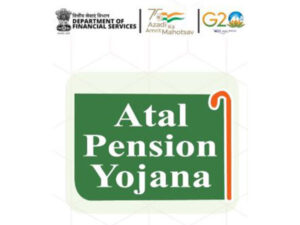High interest rates could impair capacity of borrowers to service debt: FSB to G20 leaders
New Delhi, Sep 5 (PTI) Ahead of the G20 Summit here, Switzerland-based Financial Stability Board (FSB) on Tuesday warned that higher interest rates alongside a slowing growth outlook, could impair the capacity of borrowers to service historically high levels of debt.
The FSB has published two letters from its Chair, Klaas Knot, to G20 Leaders ahead of their Summit in New Delhi on September 9-10.
The first letter outlines the work FSB has undertaken under the Leadership of India’s G20 Presidency to address existing vulnerabilities in the financial system and enhance the resilience of the financial system to structural change.
The second letter provides to G20 Leaders an update on the G20 Cross-border Payments Roadmap.
FSB, in its communication to G20 leaders, stressed that a resilient and stable financial system is indispensable to sustaining economic growth, particularly in the current environment.
FSB notes the challenging backdrop of strong and persistent inflation and slowing growth, and warns that rising interest rates could impair the capacity of borrowers to service the historically high stock of global debt.
Knot called on authorities to closely monitor asset quality in those sectors most sensitive to higher interest rates, such as real estate. The letter highlights concerns over the build-up of leverage in the NBFI sector, described in a report being delivered to the Summit, and notes that addressing these risks will be a major focus of NBFI policy work next year.
The letter notes that accelerated digitalisation has been the emergence of crypto-assets, including so-called stablecoins.
A number of incidents over the past year have highlighted the vulnerabilities in the crypto-asset ecosystem, which warrant close monitoring given the growing linkages with the traditional financial system.
“New technology brings not only risks but also opportunities. The FSB is coordinating work to take forward the G20 Roadmap to make cross-border payments cheaper, faster, more inclusive, and more transparent. Good progress has been made already,” Knot said.
The communication cross-border payments roadmap, said that the first phase the initial set of actions set out in the 2020 Roadmap has now largely been completed.
“This year, in the second phase, the authorities and standard setters have focussed their efforts on concrete projects that will make a difference across various parts of the cross-border landscape and on developing further the partnership with the private sector to work to achieve the Roadmap goals,” it said.
The letter underscores the need for continued political support and sustained effort by the public and private sectors in order to meet the G20 targets by 2027 to make cross-border payments cheaper, faster, more inclusive and more transparent.
“Leadership from the G20 has energised the public and private sectors and provided the political impetus, without which change will not happen” it said.
The FSB will submit to the G20 Finance Ministers and Central Bank Governors in October its first report with data on progress toward the quantitative targets and its latest annual report on progress in the individual Roadmap actions.
The FSB coordinates at the international level the work of national financial authorities and international standard-setting bodies and develops and promotes the implementation of effective regulatory, supervisory, and other financial sector policies in the interest of financial stability.
FSB, in a release said that it brings together national authorities responsible for financial stability in 24 countries and jurisdictions, international financial institutions, sector-specific international groupings of regulators and supervisors, and committees of central bank experts.






